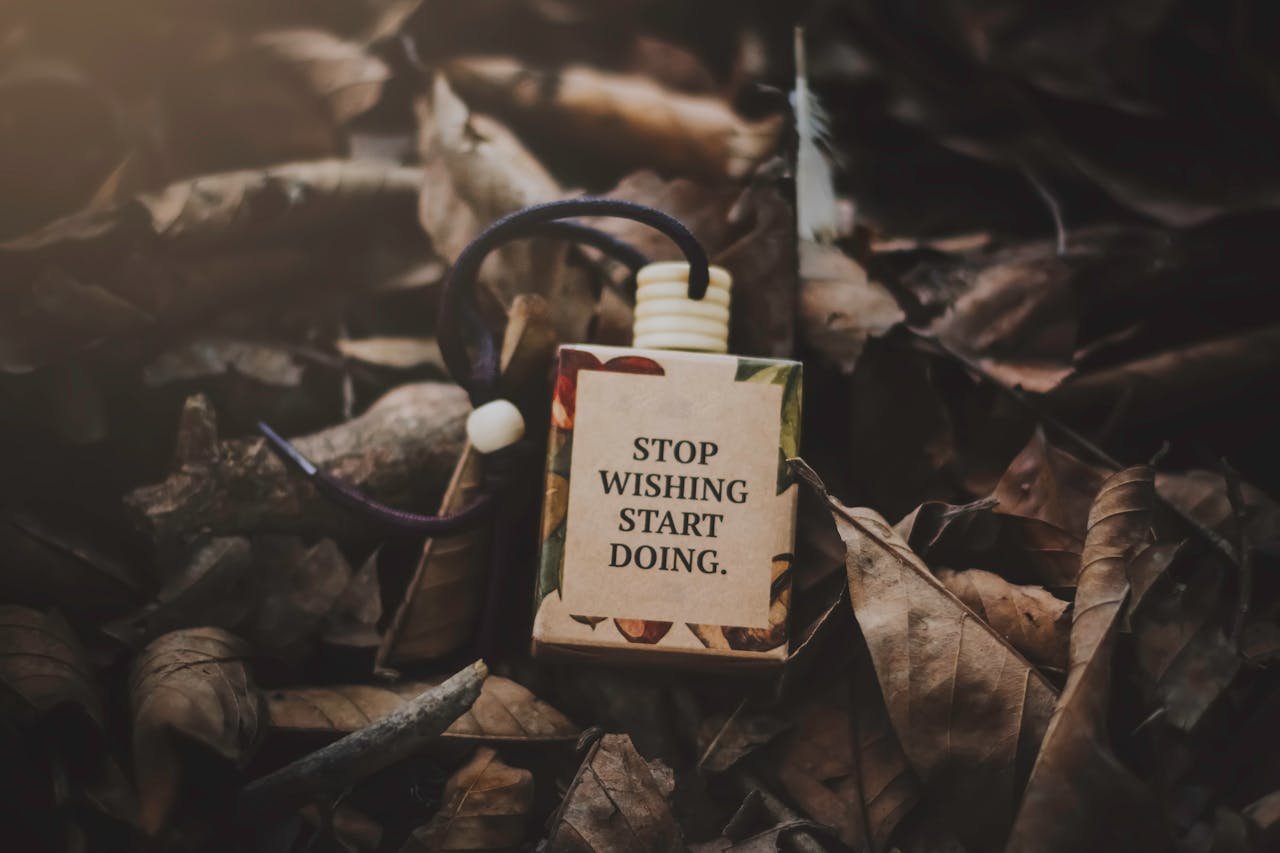Motivation feels good, but it’s not always reliable. When motivation fades, most people give up. What you really need is discipline – the habit of doing things even when you don’t feel like it. Discipline keeps you moving forward every day, no matter what.
I’ve seen how relying on motivation alone can hold you back. It’s easy to wait for a burst of energy or inspiration that might never come. Discipline is the steady force that helps you finish what you start, day after day.
In this post, I’ll share why discipline matters more than motivation and how to build it into your routine. It’s not about waiting for the perfect moment – it’s about creating habits that push you through consistently.
Key Takeways
- Motivation is temporary and often inconsistent.
- Discipline leads to steady, long-term progress.
- You can build discipline with small daily actions.
Why Motivation Isn’t Enough
Motivation feels great when it’s there, but it rarely sticks around long enough to get things done. Understanding why motivation fades, the myths around it, and what happens when it disappears helps me see why discipline is more reliable.
The Fleeting Nature of Motivation
Motivation often depends on how I feel at a moment. If I’m tired or stressed, motivation can disappear fast.
It’s like a spark that lights a fire but doesn’t keep it burning. That’s why I can feel motivated some days and not others, even if the goal is the same.
Because motivation relies on mood and energy, it’s not steady. I’ve learned I can’t depend on it alone if I want consistent results.
Common Myths About Getting Motivated
One myth I used to believe is that motivation just shows up on its own. I thought waiting for the right moment was enough.
People say “find your passion” or “wait for inspiration,” but that’s not really helpful when you have work to do.
Another myth is that motivation solves all problems. In reality, it’s just a small push, not a full plan.
Recognising these myths helped me focus on building habits instead of waiting for motivation to kick in.
What Happens When Motivation Runs Out
When motivation is gone, I often feel stuck and frustrated. Tasks that seemed easy suddenly feel hard.
This is where many people quit because without motivation, they don’t know what to do next.
But this is exactly why discipline matters. Instead of relying on feeling motivated, I force myself to keep going even when I don’t want to.
It’s like switching from riding a bike downhill (easy) to pedalling uphill (hard). Motivation helps with the smooth parts, but discipline carries me through the tough ones.
Discipline: The Key to Long-Term Success
Discipline helps you stick to your goals even when you don’t feel like it. It’s about building strong habits, staying consistent, and holding yourself accountable when things get tough. These ideas work together to keep progress steady over time.
Building Lasting Habits
I’ve found that habits are the foundation of discipline. When something becomes a habit, I don’t have to think hard about doing it. It just happens automatically.
To build a habit, start small. For example, if you want to exercise, begin with just five minutes a day. Then, slowly increase the time. This makes the task less overwhelming and easier to keep doing.
Consistency is also key here. Doing something regularly, even when motivation is low, helps habits stick. After a few weeks, you’ll notice the habit feels natural, and it takes less effort to keep going.
Consistency Versus Inspiration
Relying on inspiration is tricky because it comes and goes. I’ve learned that showing up every day matters more than waiting to feel motivated.
Consistency means working even when you don’t want to. For example, writing for 10 minutes daily beats waiting for a “perfect” moment to create. It’s much easier to build momentum this way.
One way I stay consistent is by setting clear goals with simple daily steps. Breaking goals into small tasks keeps progress moving forward, no matter my mood that day.
Accountability and Self-Control
Accountability makes discipline stronger. When I tell someone my goals or track my progress, I feel more responsible for following through.
You can use apps or write in a journal to check your daily habits. This keeps you honest and helps spot when you might be slipping.
Self-control is about managing distractions and urges. It’s tough, but I remind myself of the reasons behind my goals. That helps me say no to short-term temptations and focus on what matters most.
How to Cultivate Discipline Every Day
Building discipline isn’t about giant leaps. It’s small, steady actions you repeat daily. Being ready for setbacks and knowing how to celebrate progress keeps you going strong.
Practical Routines That Actually Work
I find routines that fit my life make discipline easier. For example, setting a fixed time for exercise or writing helps me stay consistent. I write down what I plan to do each day, so I don’t rely on memory or motivation.
Using simple tools like reminders or timers also keeps me focused. I avoid doing too much at once by breaking tasks into smaller chunks. This stops me from feeling overwhelmed and quitting early.
Overcoming Setbacks and Staying on Track
When I mess up or lose focus, I remind myself it’s normal. I don’t beat myself up over missed days. Instead, I look at why I slipped and fix that problem.
A good trick is to have a backup plan for tough days. If I can’t do my full routine, I aim for a shorter or easier version. This helps me keep the habit alive without giving up completely.
Small Wins and Celebrating Progress
I make progress visible by tracking tiny wins. For example, I mark a calendar every day I stick to my routine. Seeing the chain grow motivates me to keep going.
I also allow myself small rewards. Treating myself to a favourite snack or a break after success feels good. Celebrating these small moments helps discipline feel less like a chore and more like a choice.
FAQs
Why is discipline more important than motivation?
I’ve found motivation is shaky—it comes and goes. Discipline keeps me going even when I don’t feel like it. It’s about building habits and routines, not waiting for a spark.
Can motivation still help?
Yes, motivation can give you a push. But I don’t rely on it alone. It’s like fuel for a short trip, while discipline is the car that takes me all the way.
How do I build discipline?
Start small. I set clear goals and stick to them daily, even if just a little. Consistency is key.
What if I fail or slip up?
That happens to me too. The important thing is to get back on track without beating yourself up.
Is discipline the same for everyone?
No, it looks different for each person. I find what works for me through trial and error—and I adjust as needed.
| Tip | Why it helps |
|---|---|
| Set routines | Makes tasks a habit |
| Break tasks down | Avoids overwhelm |
| Celebrate small wins | Keeps you motivated |
| Remove distractions | Focus becomes easier |



